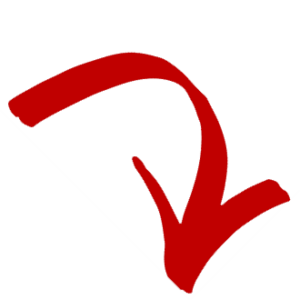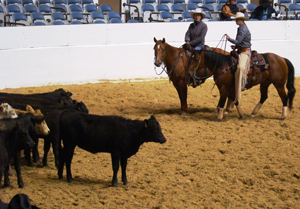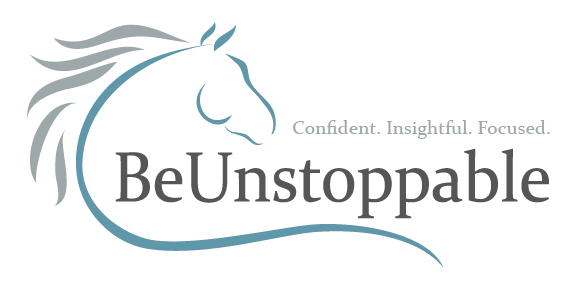Recently I received a question about how to evaluate a cow horse that is nonchalant about his job.
How do you know if there are untapped talents within your horse … or if the horse is just not up for cutting?
Of course, without asking lots of questions and digging into this particular horse’s history physically, mentally, training-wise, etc. … I couldn’t really answer that question in an informed way. However, I can provide some ideas to ponder.
Here are four questions to ask yourself if you are wondering if your horse has the aptitude and desire to work a cow … and if he is the right horse for you now at this point in your cutting adventure:
1. Is the horse “finished” in his training? By this I mean, did the horse at some time in the past, complete a full regimen of training and seasoning. Is he solid? I believe amateurs require horses that are “fully” trained. Most often this is reflected in the competitive earnings of the horse, although not always. Do research with past trainers and ask lots of questions about training, experience, aptitude, and soundness.
2. Is the horse naturally “cowie”? Just like people, horses are born with their own unique set of talents and skills. Some horses have a lot of instinct for a cow and others not so much. Sometimes horses are nonchalant about their jobs because they don’t have a strong instinct to work a cow. If your horse is not responsive to a cow by nature that would be a good reason, he is nonchalant about his job. When you inquire about a horse’s past training history, also ask about his “cowie-ness”.
3. Is the horse sound now? This is where I get on my soapbox! (-: No horse can perform at his best when he is uncomfortable. Cow horses are superb and extreme athletes. Sometimes they have soundness issues that lie below the surface and cannot be detected without a vet exam.
Additionally, just because they had no soreness issues a month ago, does not mean there is nothing going on now. If they’ve been worked and shown rigorously, they need to be re-checked by a vet every 6 months or so. He may need to be supported in whatever way a vet suggests to maintain his soundness and health for the long term. Get your horse checked periodically (better for the vet to say nothing is wrong than to have an uncomfortable horse … or worse yet keep working him and injure him). Ask your vet for a program to maintain his soundness and health and follow it.
4. Do you have a support program in place for you and your horse? If the answers to the first three questions above are undoubtedly in the “yes” column, then here is the next step. Carefully consider what you need AND what your horse needs to keep you both improving as individuals and as a team.
This is where the lines get blurred. Some amateurs do not have the experience to keep a horse working to his full potential. Of course, this is totally understandable. Your responsibility as the owner is to do your research about local training programs, as well as the strengths and weaknesses of individual trainers for both teaching you and supporting your horse.
Perhaps if your horse has been in the pasture for a long time, the first step is for a trainer to condition and evaluate how solid he is. After that step is completed, then the trainer can suggest if the horse has the potential to be a good fit for where you are at this point in time.
LET US KNOW YOUR THOUGHTS 


I don’t think the title of your article matches the content lol. Just kidding, mainly because I had some doubts after reading the article.
I don’t think the title of your article matches the content lol. Just kidding, mainly because I had some doubts after reading the article.
About ten years ago I attended a three day clinic with a well-known horse professional. I had been riding a little dressage with my then 4 year old AQHA gelding. Part of the workshop included some “tests” that could indicate what a horse might be good at. At the end of the three days, each rider had a private consultation with the clinician to discuss next steps. The clinician told me that if I wanted to ride dressage, I could perhaps do that; but my horse really wanted to work cattle. I had never even considered cattle work, but I’m… Read more »
Some years ago, we bred a ‘cowie’ mare to a well known high money-earning cutting horse stallion. The result was a fancy bay colt, whom we gelded, then had in professional training almost 2 years with a goal to show in the Cowhorse pen. Well, I never thought of your descriptive word ‘nonchalant’, but it describes him perfectly. Although he was very trainable and learned all reining maneuvers easily, he could care less about a cow. He wasn’t frightened, didn’t act out, would walk quietly through a herd, just simply had no interest in the cows. So we sold him… Read more »